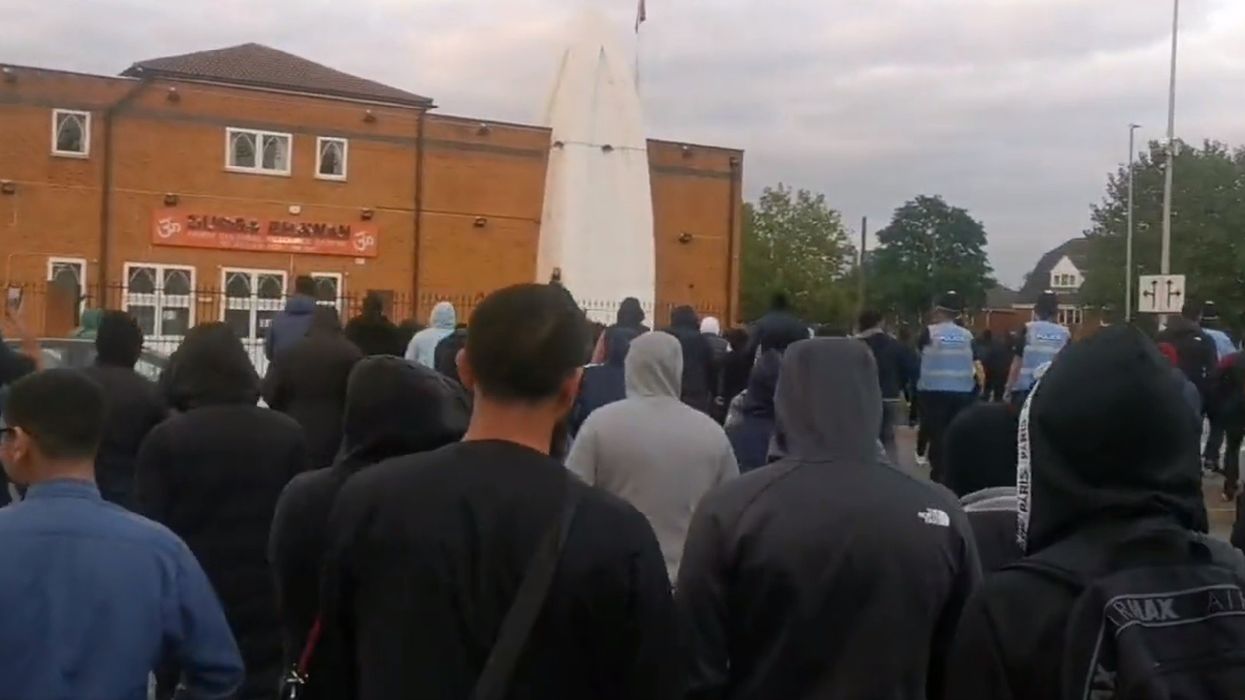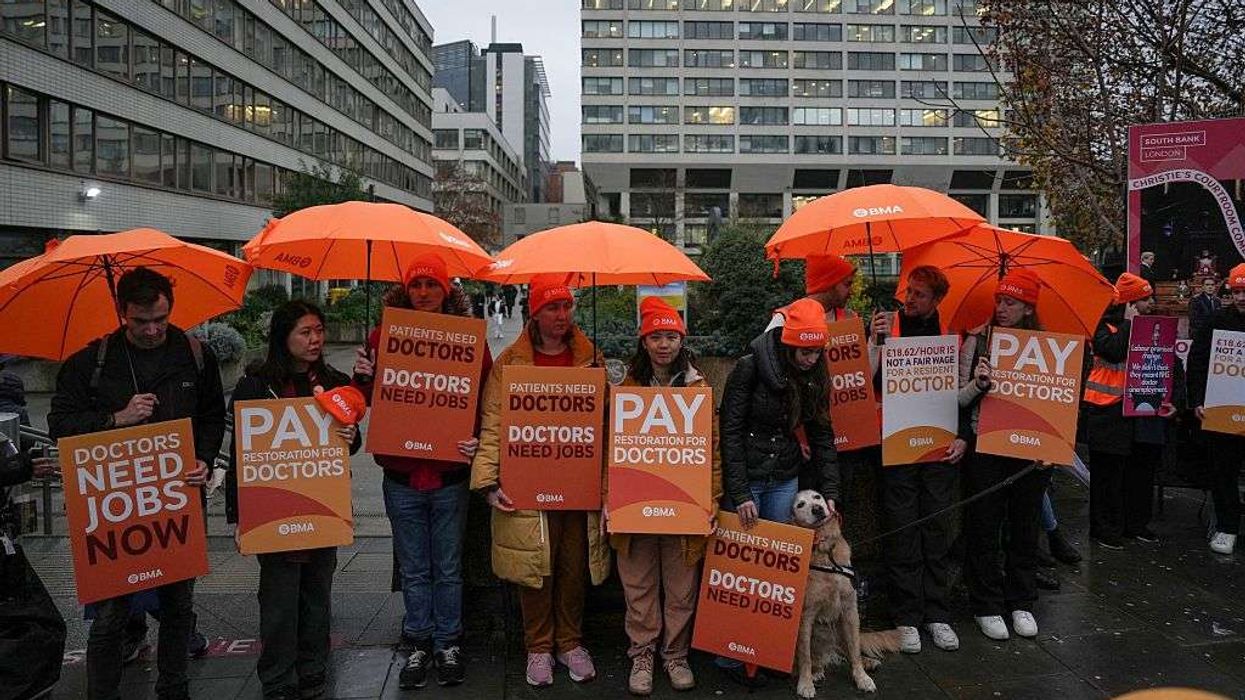After investigations into the recent clashes involving some Muslims and Hindus in the city of Leicester, a UK-based think tank has debunked the narratives that RSS and Hindutva groups played part in the violent clashes, putting the wider Hindu community at risk from hate, vandalism and assault.
Charlotte Littlewood, a Research Fellow at the Henry Jackson Society, made the conclusion after conducting interviews with both Muslim and Hindu residents, compiling social media evidence, video evidence, police reports and statements. Contrary to press reports at the time, Littlewood said the investigations did not find Hindutva groups operating in Leicester but instead discovered a micro-community cohesion issue falsely presented as an issue of organised Hindutva groups.
She observed a community cohesion breakdown pertaining to loud festivals, antisocial behaviour and a conflict between Muslim youth and Hindu youth stemming from territorial attitudes towards one another.
Violent clashes erupted in UK's Leicestershire after India won the Asia Cup T20 match against Pakistan on August 28. In a similar incident, a mob staged a violent demonstration outside the Durga Bhawan temple in United Kingdom's Smethwick in Birmingham on September 20 triggering fears of clashes.
The report discovered that the clash in Leicester was a micro-community cohesion issue falsely presented as an issue perpetuated by Hindutva groups. It found that false allegations of RSS and Hindutva organisations active in the UK have put the wider Hindu community at risk from hate, vandalism and assault.
Some members of the Hindu community in Leicester imposed a voluntary curfew, some relocated to stay with family or friends until they felt safe to return, while still others were unable to return to work owing to fears for their personal safety, the investigations revealed.
There was significant civil unrest from September 4-20 between ethnic minority groups in Leicester, including vandalism of property, assaults, stabbings and attacks on places of worship, said the HJS report.
Most notably, the report pointed out that on the weekend of September 17, marches comprised of Hindu and Muslim adherents occurred in the city, accompanied by chants of 'Jai Shri Ram' and 'Allah u Akhbar'.
Some Hindu and Muslim protestors wore balaclavas and others were arrested for possession of weapons, the report added noting that at present there have been 55 arrests/voluntary police interviews.
While spending time in Leicester conducting interviews with both Muslim and Hindu residents, and compiling social media evidence, video evidence, police reports and statements, Littlewood observed a "community cohesion breakdown" pertaining to loud festivals, antisocial behaviour and a conflict between Muslim youth and Hindu youth stemming from territorial attitudes towards one another.
The report that has resulted is the first in-depth collation of evidence and analyses of what led to the unrest. Earlier as well, UK's opposition Labour Party had debunked baseless narratives pushed out by radical groups behind the clashes in Leicester, including baseless allegations of interference by political forces in India.
In a statement issued earlier, the Labour Convention of Indian Organisations (LCIO) had said it was "deeply saddened" by the incidents of violence, which it fears is now fuelling religious hatred in the communities, reported iGlobal News.
The statement read, "Having spoken to locals, it seems extremist groups are pushing 3 baseless narratives - that diversity in the UK has failed; the disturbances are being orchestrated by forces from India and historic differences mean that we can't live together peacefully as one community."
The cycle of violence was triggered on August 28 after India won the Asia Cup T20 match against Pakistan. A clash broke out among groups of young men in Leicestershire, according to the Leicestershire police statement.
"These are problematic as this will only polarise a once harmonious community, even further. These narratives have caused a local issue to spill over into places such as Birmingham," read the statement.
The Indian High Commission also condemned the violence perpetrated against the Indian community in Leicester and sought immediate action against those involved in the attacks.
"Community leaders from all sides are pleading for an end to this violence so that Leicester and its people may live in peace again," added the statement. "Now is the time for people regardless of identity, politics and background to come together on this issue," it added.













